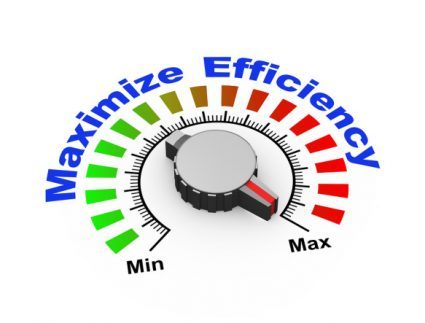My feed is filled with all sorts of posts focusing on efficiency and time management. We are time poor (not new news), we have more to work than the time available to do it.
There are endless technologies that focus on helping us accomplish more in the same or less time. Tools that automate much of our work. Rather than having to write 1000s of emails or make 100s of dials, we have tools that do it for us. Tools that manage our tasks, optimizing our days. Among the latest are tools like ChatGPT and it’s variants that offload us, completing writing tasks, both in less time and better (which should tell you something about the abysmal quality of our writing skills).
We’ve seen our tech stacks skyrocket in the last 12 years. Each new technology intruding on our days in their efforts to make us “more efficient.”
We’ve segmented selling roles, rather than full cycle sales (whether inside or outside), to free up time. SDRs do all the prospecting, turning over near qualified leads to AEs. AEs are freed up to manage more deals. Jobs become segmented to make us more efficient.
Customers are helping us, perhaps inadvertently, become more efficient. There prefer digital engagement, with 72% preferring rep free engagement. Sales people are getting involved later and later in the cycle. Theoretically, this optimizes seller time because much of the early discovery and other work no longer needs to be done by humans.
At the same time, performance has declined. Quotas haven’t increased significantly, but win rates have plummeted. Percent of sellers making quota continues to decline.
And, in responding to this, managers insist on doing more, and we find new reasons for new technologies, taking more of our time to make us more efficient.
One would think that becoming more efficient would enable us to produce higher levels of performance in the time that we have, or in less time. But, somehow, it doesn’t that doesn’t seem to be what’s happening.
Perhaps in our quest for efficiency, we are solving the wrong problem.
Perhaps instead of constantly trying to do more of what we’ve always done, perhaps if we changed what we do, we could achieve more. This argument requires us to look both at effectiveness and doing things differently.
I get concerned that I seldom see discussions about doing better or doing different. They always focus on doing more.
I worry that when we see that our efforts to do more, actually produce declining results, we continue to look at how we do even more. We seldom pause to ask, “What should we be doing differently?”
The challenge we face is not being more efficient, but how do we do better, how do we become more effective? Once we find the answer to that, then we can look at how we do more of that which produces better results.
Stated differently, striving for more efficiency doesn’t mean we aren’t our time.

Leave a Reply